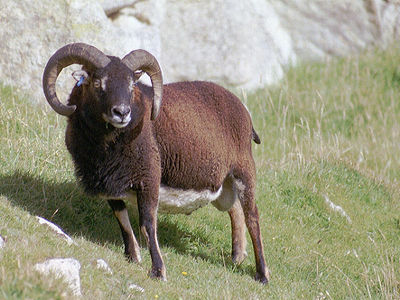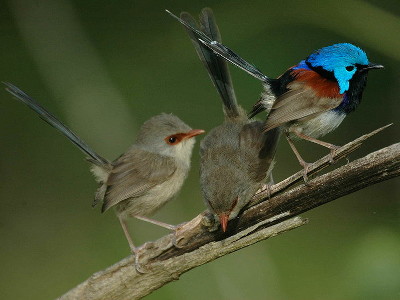Evolution flows backwards, sheep are shrinking due to global warming

Large and strong individuals survive in harsh natural environments, evolution by natural selection (egu) is usually made to enlarge animals especially in cold areas. However, on the uninhabited island in the northern part of Scotland, a sheep that is decreasing in body weight and weight year after year has been observed to regress this evolution, which is thought to be an effect of global warming.
Details are as below.Climate change makes sheep shrink - Telegraph
It is located in the northwest of Scotland and is also registered as a World Heritage SiteSt. Kilda ArchipelagoThe wilded soybean sheep (Soay Sheep) inhabiting in the world is the oldest in the worldSheepIt is one of the varieties, originally half the size of livestock sheep (maximum 45 kg, life expectancy is about 16 years), but in the past 24 years that body weight and body height are also 5% smaller.
Summer is long in Soi I Island recently due to the influence of global warming and the climate is gentle in winter. It seems likely that the sheep's physique will be better as plants to become a feed become abundant, but in reality sheep mean body weight is decreasing by 100 g per year. Experts believe that the warm climate has made it possible to survive small and weak individuals that should be culled out by severe winter in the winter, so that the average value of strong sheep over 2 thousand heads has been lowered.
In a mild climate, the female is young and birth has a child while he is smaller, so the child born for this is getting smaller. He is the principal investigator of this surveyImperial College LondonProfessor Tim Coulson of Professor Tim Coulson said that because winter became short and gentle due to global warming it became possible to survive the winter without accumulating a large amount of fat in a few months after birth as before, born in a small body It is suggested that individuals can also survive.
The name of southern sheep comes from southern island, but now it also lives on other islands of the St. Kilda archipelago, professors Coulson et al. Are 1500 acres (about 607 hectares) of Hilta island which has been unmanned since 1930 Of the sheep, and has been marking and measuring every summer for 24 years. According to the results of this survey published in Science magazine, it is reported that the average weight of herd decreased from 30 kg to 28 kg during the period. The average length of the legs is also shorter than 0.5 inch (1 cm stronger).
"Only a large sheep that was healthy before and only a large sheep that grew large enough in the first summer and enlarged the body could survive the tough winter," Professor Coulson said. "But now the climate change makes the grass that will become a food a year longer and the winter is no longer as difficult as it used to be, so slow live sheep will also be able to survive and these small The proportion of individuals occupying in the number of individuals is increasing. "
In addition, the number of individuals increased due to the abundance of feeds, and the amount of feed ingested per head is actually decreasing, "Global warming exerts an influence that exceeds natural selection It is said that.
According to Professor Coulson, the results of this research help to predict the impact of global warming on other herds of animals living in other isolated places, and why fossils of elephants and rhinos which were sometimes miniaturized on remote islands etc. were discovered It may be an explanation as to whether it will be done.
Related Posts:
in Note, Posted by darkhorse_log







